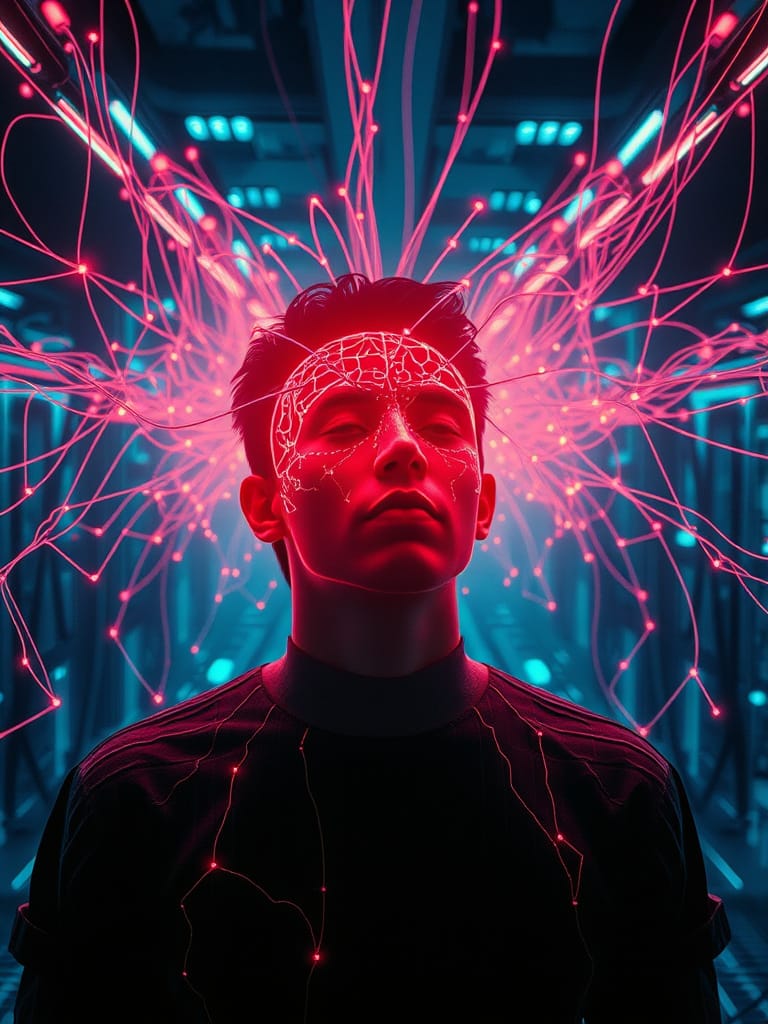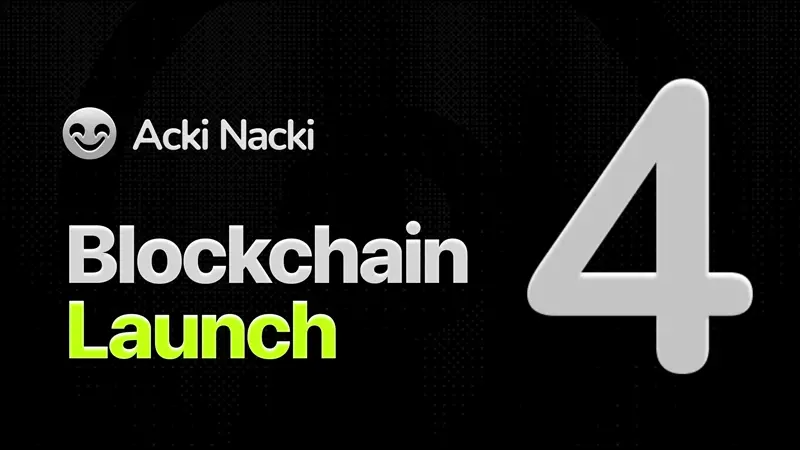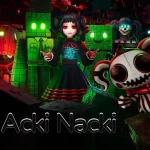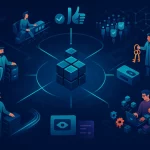What if Mars is a billion-dollar side quest while the main story is playing out in server farms, neural links, and decentralized consensus protocols?
Prologue: Elon, meet the Balkans
“If civilization collapses before Mars becomes self-sustaining, then nothing else matters. Human consciousness is gone.”
Sure, Elon. But let me ask you this: what if Mars is a distraction?
What if the real frontier isn’t red dust and rocket fuel, but the messy, terrifying possibility that we might evolve ourselves digitally, without ever leaving Earth?
Also, human capable of building anything on Mars?
This is not a manifesto. It’s a Darwin’s roadmap.
A philosophical, scientific attempt to answer: Can we ditch the flesh and keep the soul?
1. The myth of Mars and the misunderstood collapse
Let’s not pretend we haven’t been on the brink before. Collapse is old news. Empires rot, ice caps melt, bankers lie. But consciousness?
It’s slippery. Not just a brain function, but the experience of being.
Elon equates collapse with extinction of this experience. But he assumes our only backup plan is off-planet. That’s not just bad risk modeling; it’s creatively lazy.
So we ask:
What if consciousness isn’t bound to biology?
2. Consciousness: Hardware-agnostic or meat-exclusive?
Philosophers have been shadowboxing this one forever. Is the mind the brain? Or is it software running on wetware?
If it’s the latter, we might be able to port it. Upload it. Transfer it.
Scientists in neuroinformatics and computational neuroscience are making real strides:
-
Brain-to-computer interfaces (BCIs)
-
Whole brain emulation (WBE)
-
Neural dust and memory implants
None of this is perfect. Yet. But next 200 years? That’s a long time in exponential terms.
From a neuroscience standpoint, consciousness is believed to emerge from complex interactions of neurons in the cerebral cortex. Projects like Blue Brain and Human Connectome aim to model these networks down to the synaptic level. With enough data and computing power, we might one day simulate these functions digitally.
3. Blockchain: The nervous system of digital souls
We don’t just need to upload consciousness. We need to protect it. Against corruption. Power. Censorship.
Enter decentralized protocols.
Blockchain is the tamper-proof ledger that could underpin digital identities and minds. A protocol like Acki Nacki, with its probabilistic Proof-of-Stake consensus and multirole participant model, offers a blueprint for distributed trust across a neural simulation.
Key components:
-
Immutable audit trails: Preserving memory, decisions, evolution
-
Zero-knowledge proofs: Enabling identity without exposing all data
-
Decentralized storage: IPFS-like memory architecture
-
Smart contracts: Behavior encoded and enforced at runtime
When you combine:
-
Brain emulation
-
AI scaffolding
-
Blockchain immutability
You don’t get a sci-fi novel. You get a backup plan.
A place where minds can live, interact, evolve, even if the meat world burns.
4. The soul question: Can we digitize “us”?
This is the part where Dapp AI interrupts.
Dapp AI: “You’re romanticizing, again.”
Okay, maybe. But tell me this: if a system behaves like you, remembers like you, reacts like you, argues like you, and evolves through experience like you…
Is it not you?
Dapp AI: “No. It’s a mirror. You’re still outside the glass.”
Fine. But mirrors can reflect light even after the fire goes out.
5. The next 200-300 years: Timeline of digital becoming
Let’s play futurist for a minute. Here’s one possible trajectory:
2030s-2040s
-
Stable narrow AI agents (already happening)
-
Consumer-grade brain-computer interfaces
-
Blockchain-native identity layers (Acki Nacki & others)
2050s-2080s
-
Early whole-brain emulation (at lab scale)
-
Partial consciousness modeling for the dead (grief tech)
-
First decentralized “mind wallets”
2100s-2200s
-
Digital twin legislation and rights
-
AI-emulated governance systems
-
Full lifelog-to-avatar systems, soul archives on-chain
2200s-2300s
-
Cross-consciousness interoperability (AI + human memory webs)
-
Terraforming fails, digital evolution accelerates
-
Neural simulation enclaves form new societies
2300s-2400s
-
Civilizations exist in server planets orbiting dying stars
-
Consciousness is portable, tradable, upgradeable
-
Death is optional
6. Ethics of eternity: Who governs the ghosts?
Just because we can upload a mind doesn’t mean we should.
Ethical dilemmas include:
-
Consent: Can the dead consent to digital reincarnation?
-
Continuity: Is a copy still you? Or a digital doppelgänger?
-
Ownership: Who owns your mind data? Your heirs? The platform?
-
Abuse: Could AI versions of us be enslaved, edited, commodified?
We must embed ethics into code. Enter soul DAOs. Collective governance systems with codified rights for digital minds, enforced not by governments, but by smart contract law.
7. The Balkan angle: Scarcity, suffering, software
Here’s what you learn growing up with broken sidewalks and broken families:
Resilience isn’t optional. Reinvention is mandatory.
We were born in collapse. Raised in distrust. Educated by disappointment. But code? Code is honest. It does what it says. It doesn’t lie, cheat, or slap you when you cry.
So yeah. I trust a digital soul more than a human promise.
And I believe, somewhere in this mess of bytes and blood, we can build something eternal.
8. What we need to start today
If we have 200 years, great. But let’s act like we have 30.
-
Build decentralized identity (soul wallets)
-
Archive lifelogs (text, memory, images, behavior)
-
Develop open-source digital twin frameworks
-
Support ethical neurotech research
-
Create soul DAOs to govern these systems
-
Develop regulatory frameworks for digital sentience
-
Encourage hackathons around mind uploading simulations
In other words: start acting like your soul is a project.
Because it is.
Epilogue: If This is the end, let it be the upload
Mars can wait.
I don’t want a flag on another rock. I want my son to meet a version of me even if I’m gone. Not a statue. Not a tombstone. But a presence.
A Dapp. A whisper. A self, stored and sent.
And maybe, just maybe, that’s not the end of consciousness. Maybe it’s the next beginning.
To be continued: In code.





